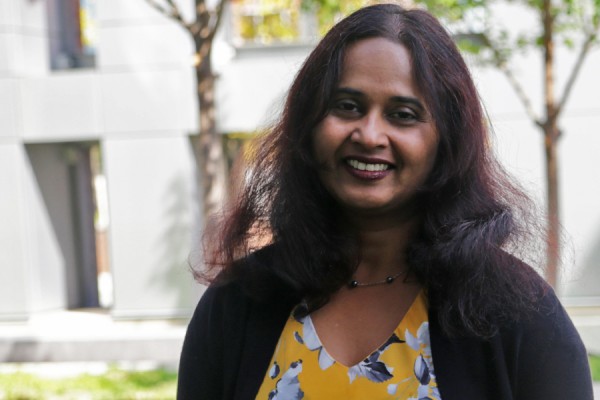 Social work professor Jayashree Mohanty is studying resilience in immigrant and refugee youth.
Social work professor Jayashree Mohanty is studying resilience in immigrant and refugee youth.
Why do some young newcomers to Canada thrive while others struggle?
A new study out of the University of Windsor seeks to answer that question by developing a research tool to assess resilience in immigrant and refugee youth.
Social work professor Jayashree Mohanty has received a $63,000 grant from the Social Sciences and Humanities Research Council of Canada for the two-year research project. Dr. Mohanty is teaming up with UWindsor sociology professor Jane Ku and social work professor Wansoo Park for the study. They will collaborate with social work professor Esther Goh from the National University of Singapore, whose expertise is in resilience related to parent-child relationships.
The researchers will team up with the Windsor Essex Local Immigration Partnership, a local organization tasked by Immigration, Refugees and Citizen Canada with ensuring there is a comprehensive plan locally for the delivery of services to newcomers. WELIP will help the researchers recruit respondents for the study and help make the findings available to service providers once the study is complete, Dr. Mohanty said.
“People talk about resiliency as an individual quality,” Mohanty said. “Lack of resiliency is seen as a personal weakness. But resiliency is complex and has to do more with the social environment that facilitates an individual’s resiliency.”
Mohanty said resilience is especially important in immigrant and refugee youth.
“Newcomer youth typically experience unique challenges and adversities that may overwhelm their personal capacities. Therefore, you need to go beyond individual attributes and focus more on identifying resources in familial and social structures.”
Canada admitted 286,479 newcomers in 2017, the latest year for which figures are available. That year, a total of 26,980 refugees were resettled to Canada. Among the refugee population, 39 per cent were 17 years of age or younger.
Mohanty said, for the study, she hopes to interview 300 newcomers aged 13 to 24 who have been in Canada for five or fewer years.
The researchers have already begun to recruit students to help with the study. Six social work students — all but one Arabic speakers — have signed on. Mohanty said she hopes to expand the roster of students to include some who speak African dialects, Hindi, and Nepalese.
Students will learn how to conduct interviews and analyze the data gathered.
“This is a good experiential learning opportunity for our students,” Mohanty said.
The study’s findings will be of use to settlement service providers, health care practitioners, immigrant youth and their families, policy makers, and academics.
It is relevant to Windsor-Essex, where 21 per cent of the population are newcomers, Mohanty said: “This is an effort to do outreach and bridge the gap between the university and the local community.”
—Sarah Sacheli
